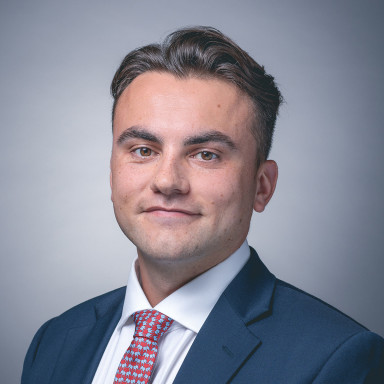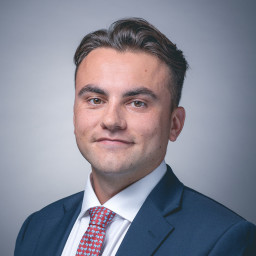Flavia Cheong has plenty of experience investing in the Asia Pacific region
abrdn have a well-resourced team and benefit from on the ground expertise
Over the long term, the fund has outperformed but recent returns have been lacklustre
We have recently removed this fund from the Wealth Shortlist of funds chosen by our analysts for their long-term performance potential
How it fits in a portfolio
The abrdn Asia Pacific Equity fund aims for long-term growth by investing in a range of Asian markets, including both established and less-developed economies such as China, India and Australia. It could therefore provide broad exposure to the Asia Pacific region and diversify a global portfolio with a long-term view. Funds that focus on other regions, or specific countries, could be added alongside this one as part of a broader investment portfolio. The fund includes some investments in emerging markets, which adds risk.
The fund has been a long-term constituent of the Wealth Shortlist (previously the Wealth 50 and Wealth 150). Our conviction in the fund has been based on its strong team, ample resources, and long-term investment approach. We now find that these elements no longer set it apart in the competitive Asia Pacific sector. As a result, we’ve decided to remove the fund from the Wealth Shortlist.
Manager
Flavia Cheong has co-managed this fund since 1996 and is Head of Asia Pacific Equities at abrdn. Cheong is an experienced investor and leads the team of four directly looking after the fund, with key input into its final construction.
One of the leading members within the team is Pruska Iamthongthong. She has been co-manager since August 2007 and is a senior investment director within the Asian equities team.
A broader team of analysts and portfolio managers has been built over time, providing vital support on this fund and other Asian and emerging markets funds. They are based across the globe, from Singapore and Bangkok to Hong Kong and Kuala Lumpur. This provides good access to companies, and insight into what's going on across the region.
Hugh Young, the funds former longstanding co-manager and Chairman of Asia Pacific at abrdn retired at the end of 2023. Young was instrumental in setting up the group's Asian equities strategy in the late 1980s and although it’s a shame to see him leave the team, it’s only natural after such a successful career for him to call it time.
Process
The team's investment philosophy is based on 'long-term quality'. They believe most investors underestimate the sustainability of returns that many high-quality companies can make. They aim to find companies which can generate long-term growth, that have been overlooked by others, and hold onto them for many years.
Companies in good financial health, run by robust and trustworthy management teams are favoured by the team. They often look for a change that could help boost profits in the future, such as a new product or change in the use of technology. They sometimes invest in out-of-favour companies that can be bought at a more attractive share price.
Meeting company management is important to the team. While the world is currently a little different, they can typically do this regularly as team members are based throughout Asia. They also like to engage with companies on environmental, social and governance (ESG) issues that could lead to better outcomes for both investors and society over the long run.
The team typically favours businesses that rely on growing consumer wealth, though the fund has at least some exposure to most major sectors to keep it diversified. Importantly though, each company should be a leader within its market – for example, the business might offer a specialist product that isn't available elsewhere.
During 2023, the team made several new investments including Korea Shipbuilding & Offshore Engineering, which is one of the world’s largest shipbuilding companies. Resmed, the medical equipment company was also added to the portfolio. Following a lacklustre set of results the share price fell significantly and presented what the team believe to be an attractive price for the company’s growth prospects.
To make way for new additions, several companies were sold. China was a key focus for the team and resulted in the sale of China Merchants Bank, Yonyou Network and JD.com. Other sales included OZ Minerals, the Australian mining company was also sold after a successful takeover offer earlier in 2023.
Culture
Aberdeen merged with Standard Life in 2017 to become Aberdeen Standard Investments, and subsequently renamed as abrdn. The Asian Equities team subsequently made some small changes to their investment process, though the core of their philosophy remains intact. We're pleased to see the team has settled and encouraged that they're willing to learn and keep improving what they do. The group has remained committed to investing in Asia ever since and we think this dedication is admirable.
The broader team is responsible for a range of Asian and emerging markets funds and investment trusts. Each member provides input to the wider franchise, and they're willing to share their knowledge and experience to ensure their best ideas make it into the portfolios.
ESG Integration
abrdn is a firm well known for its commitment to Environmental, Social and Governance (ESG) investing. Responsible investing has been part of the business since it set up its Corporate Governance team in 1992 and launched its first ethical fund in 1994. We like that the firm’s policy positions on a range of divisive issues, from plastics and tobacco to palm oil and biodiversity, are easily available on their website. The firm also produces frequent ESG-related thought leadership articles, a podcast series and an annual Stewardship report.
We’re pleased to see that the firm’s commitment to ESG has filtered down to the fund level. abrdn fund managers generally see themselves as owners of businesses, not investors, and stewardship is an important part of their investment processes. The firm exercises all voting rights and engages with management to encourage best practice.
ESG and stewardship factors are included in every stock research note and each firm receives an ESG score, based on its ESG credentials and its ability to manage ESG risks. In fixed income, ESG risks are assessed and priced alongside other credit risks, and the managers encourage action that will reduce these risks. As with equities, each issuer receives an ESG risk rating. abrdn fixed income managers can invest in bonds issued by companies with a poor ESG risk rating but require greater compensation via the credit spread. All managers have access to a central ESG team, as well as specialist on-desk analysts.
The company runs several exclusions-based and impact funds, which take their commitment to society, the environment, and other thematic investment goals a step further.
Cost
This fund usually has an ongoing annual charge of 0.85%, but we've secured HL clients an ongoing saving of 0.30%. This means you pay a net ongoing charge of 0.55%.
The fund discount is achieved through a loyalty bonus, which could be subject to tax if held outside of an ISA or SIPP. The HL platform fee of up to 0.45% per year also applies.
Performance
Since August 1996, when Flavia Cheong started managing this fund, it’s returned 557.92%*, outperforming the IA Asia Pacific Excluding Japan sector average return of 450.17%. It has also outperformed the regional benchmark.
However, the fund’s performance has struggled more recently. Over the past five years, it’s failed to outperform its benchmark and the IA sector average. Our analysis suggests that, for several years, the manager hasn’t consistently added value through stock selection. This is a key factor we analyse when assessing a fund manager, and represents their ability to pick strong performing companies regardless of what size or sector they’re in.
The past 12 months have been especially tough, with the fund declining by 7.68% versus -0.15% for the IA sector average. It also lagged its benchmark which delivered a positive return over the period. The fund’s investments in China have hurt recent performance where stock selection has detracted.
The fund’s style, particularly its focus on quality has also been a headwind with the Chinese market mainly being driven by more value-oriented companies. Given their focus on ‘quality’ companies, we would typically have expected the fund to hold up better when markets fall, but the fund hasn’t met these expectations in recent years.
It's been a difficult period of performance for the fund, and during periods where a manager's style is out of favour, we like them to stick to their investment process and focus on the long term. While we acknowledge the team's commitment to their established process, our confidence in the fund's ability to outperform over the long term has diminished. As a result, we’ve decided to remove the fund from the Wealth Shortlist.
Annual Percentage growth
Dec 18 - Dec 19 | Dec 19 - Dec 20 | Dec 20 - Dec 21 | Dec 21 - Dec 22 | Dec 22 - Dec 23 | |
|---|---|---|---|---|---|
15.46% | 24.64% | -1.74% | -8.96% | -7.68% | |
IA Asia Pacific excluding Japan | 15.68% | 19.43% | 1.92% | -6.42% | -0.15% |

